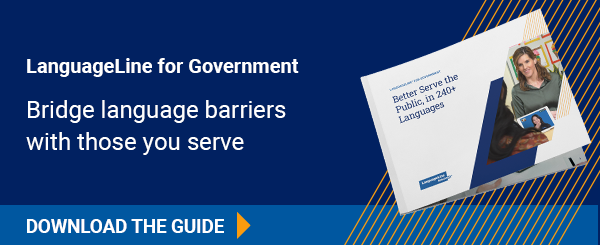Atlantic City is best recognized as a transient resort area memorialized by Bruce Springsteen. Now Atlantic City is becoming known for something else: its diversity. More than two dozen languages are spoken in the school system alone.
Linguistic hurdles present challenges to the Atlantic City police force, which is making gains in navigating cultural differences and building trust.
“People are so appreciative that you’re even trying to talk to them in their language,” Police Officer Autumn Mason told The Press of Atlantic City.
The department has made a point of hiring multilingual police officers. Atlantic City officers speak 22 languages across the department. They use their linguistic skills to communicate with residents in their native tongues during serve calls, when filling out reports, and during traffic stops.
Besides English, Mason’s partner, Officer Syed Shah, speaks Urdu, Punjabi, and Pushto — languages spoken in Pakistan, India, and Afghanistan, respectively.
“We’ve been teaching each other things,” Mason told The Press of Atlantic City. “He has me saying things in Urdu, and he’s been saying things in Spanish and people are so happy with it.”
Languages spoken in the areas they patrol also include Vietnamese, Creole, Portuguese, Bengali, Arabic, and Albanian.
“It’s not just about speaking the language,” Shah said. “It’s understanding the culture.”
Two years ago, Shah performed a traffic stop on a car that was heading the wrong direction on a one-way street. The person got out of the car and began walking toward the officers, which caused Shah’s backup to put his hand on his service revolver. Shah quickly realized what was happening and calmed the situation down.
“Back home, when you get pulled over by a cop, you have to get out and walk toward a cop,” he said. “It’s just a cultural difference, and you have to realize that.”
What happens when an officer does not speak the same language as a citizen? Officers are able to call LanguageLine® via an app on their smartphones, their two-way radios, or a toll-free number. At the touch of a button, they can reach a professional interpreter in more than 240 languages. Any member of the community can request an interpreter when interacting with the police, as well.
“The community should know that just because you don’t speak English, that doesn’t say that you don’t get police services,” Officer Jimmy Rodriguez said. “You should be able to call for help and have the police department or someone help you out in your language if you need it. We’ll do the best we can.”
Photo credit: Craig Matthews, The Press of Atlantic City
LanguageLine Can Help
LanguageLine has been the world leader in innovative language-access solutions since 1982. The company sets the global standard for phone, video, and onsite interpreting, as well as translation of the written word. LanguageLine is trusted by more than 30,000 clients to enable communication with the limited English proficient, Deaf, and Hard of Hearing communities. LanguageLine provides the industry’s fastest and most dependable access to more than 35,000 professional linguists in 290-plus languages — 24 hours a day, seven days a week, 365 days a year. Please do not hesitate to contact us!


